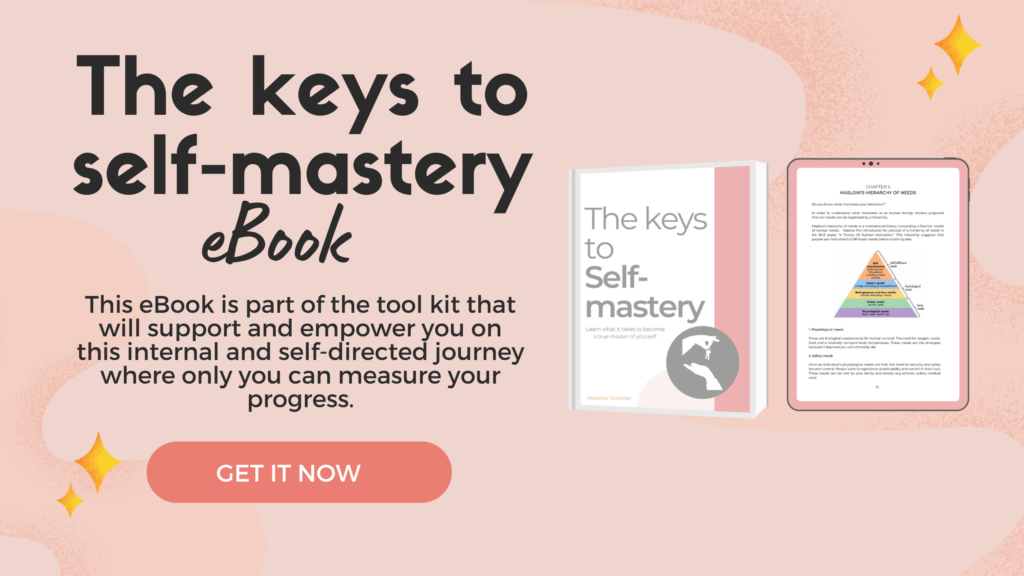
In a world that often emphasises the value of social connections, there’s an important distinction to be made between being alone and feeling lonely.
Many people associate solitude with a sense of isolation or sadness, but the truth is that being alone can be a fulfilling and rejuvenating experience. 😊
In this blog post, I will explore the nuances of being alone versus feeling lonely, understanding the importance of solitude, and embracing the positive aspects of both states.
Let’s get to it. 💕
The Difference Between Being Alone and Feeling Lonely:
Being Alone:
Being alone is a state of physical solitude, where you find yourself without the company of others. It can occur by choice or as a natural consequence of circumstances. Spending time alone provides an opportunity for self-reflection, relaxation, and personal growth.
It allows you to engage in activities that bring you joy, pursue hobbies, or simply enjoy a moment of peace. Being alone can be a deliberate choice, a time to recharge and connect with oneself. 🥰
Feeling Lonely:
Loneliness, on the other hand, is an emotional state that arises from a perceived lack of meaningful connections. It’s possible to feel lonely even in a crowded room if the connections are superficial or unfulfilling.
Loneliness is often characterised by a sense of emptiness, isolation, or a longing for deeper human connections. It’s a complex emotional experience that can impact mental and physical well-being. 😟

Embracing the Positive Aspects of Being Alone:
1. Self-Discovery:
Being alone provides an opportunity for self-discovery. It allows you to explore your thoughts, feelings, and interests without external influences. Use this time to reflect on your goals, values, and aspirations. Self-discovery is a crucial aspect of personal growth and can lead to a deeper understanding of oneself.
2. Independence:
Embracing solitude fosters independence. When you’re comfortable being alone, you become more self-reliant and less reliant on others for your happiness. This independence can empower you to make decisions based on your own needs and preferences, leading to a more authentic and fulfilling life. 🥰
3. Creativity:
Solitude often sparks creativity. When you’re alone with your thoughts, you have the mental space to generate new ideas, think critically, and engage in creative pursuits (yaay). Many artists, writers, and innovators find inspiration in moments of solitude, leading to the creation of meaningful and impactful work. 🎨
4. Rest and Rejuvenation:
Being alone allows for rest and rejuvenation. In a world filled with constant stimuli, taking time for solitude can be a form of self-care. It provides an opportunity to relax, recharge, and focus on activities that bring you peace and joy, contributing to overall well-being.

Addressing the Challenges of Feeling Lonely:
1. Cultivating Meaningful Connections:
If loneliness arises from a lack of meaningful connections, focus on cultivating relationships that nourish your soul. Seek out individuals who share your values and interests. Join clubs, organisations, or communities where you can meet like-minded people. Focus on getting yourself out there. Quality connections are often more fulfilling than a large social circle. 🫂
2. Volunteering and Giving Back:
Engaging in volunteer work or contributing to your community can alleviate feelings of loneliness. By helping others, you not only make a positive impact on the world but also connect with individuals who share a common purpose. Volunteering provides a sense of belonging and fulfillment.
3. Seeking Professional Support:
If loneliness becomes a persistent and overwhelming emotion, maybe consider seeking professional support. A therapist or counselor can provide guidance and a safe space to explore the root causes of loneliness. Addressing these issues with professional help can lead to a more fulfilling and connected life. 🫶
Finding Balance:
The key to a fulfilling life lies in finding a balance between being alone and fostering meaningful connections. Embrace solitude as a time for self-discovery, creativity, and rejuvenation. At the same time, actively cultivate relationships that bring joy and fulfillment. Recognise that both states are essential for a well-rounded and satisfying life. 💕
Conclusion
Being alone and feeling lonely are two distinct experiences, each with its own set of opportunities and challenges. Embracing solitude allows for self-discovery, independence, creativity, and rest. However, if loneliness creeps in, it’s crucial to address it by cultivating meaningful connections, volunteering, or seeking professional support. You are not alone. ❤️
Understanding the nuances between being alone and feeling lonely empowers you to navigate both states with intention and purpose. Ultimately, finding a balance between solitude and social connections contributes to a rich and fulfilling life. Embrace the positive aspects of being alone, foster meaningful connections, and savor the journey of self-discovery in this beautiful dance between solitude and companionship.
Pin this post for a reminder 📌 👇

Related Blogs
Things to Say “No” to for you to Live a Happier Life
How to Stop Settling For Less Than You Deserve
How to Become the Best Version of Yourself: A Guide For 20-Somethings
Your sense of self-esteem impacts EVERY area of your life. Your relationship with your family, your significant other, your career, your physical and mental health are all reflections of your self-esteem.
Even though having high self-esteem is indeed a good thing it’s only good in moderation. Having very high self-esteem – like that of a narcissist- isn’t something to aim for.
Even though people with very high self-esteem feel great about themselves they tend to be extremely vulnerable to criticism and negative feedback about themselves and their work.
When you take everything personally and avoid constructive criticism like the plague, you stunt your growth. You’re never going to stop making mistakes, so choosing to ignore the help of someone showing you the right way will affect you negatively in both your personal and professional life.
The only way to learn is to accept guidance and feedback. You’ll be doing yourself a great disservice if you believe you know it all and no one can do it better than you because the reality is… there’s someone else out there that is.
Why is building self-esteem so important?
The more self-esteem you have the more “inner stability” you have. When your opinion of yourself goes up you stop trying to seek validation and attention from others.
Your level of self-esteem influences the choices and decisions that you make. In other words, self-esteem serves as a motivational function by making it more or less likely that you will take care of yourself mentally, physically and emotionally.
When you have low self-esteem you may hide away from going to social events, avoid things you find challenging and be hesitant to try anything new. In the short term, avoiding anything that takes you out of your comfort zone will make you feel safe at the time but in the long term it will eventually backfire. This is because you’re reinforcing underlying doubts and fears. You’re essentially teaching yourself that the only way to cope is by avoiding things.
Here are a few ways to help build your self-esteem so that you can thrive and live a life that reflects who you truly want to be.
You deserve it girl!
Change your story
We all have a narrative or a story that we have created about ourselves that shapes our self-perceptions which our core self-image is based on. Your level of self-esteem may have grown or been reduced by how people have treated you in your past. The good news is that you have control when it comes to increasing your self-worth. If you want to change your story you have to understand where it came from.
For example, was it a teacher who made you made you doubt your academic abilities? Changing your belief on not being good enough is pretty hard. When you decide to change the story about yourself you look into your past to see if there is evidence of the new story you want to create.
Continuing with the example above, if you have successfully completed school with excellent grades and moved onto higher education, this alone shows you that you have accomplished a lot despite what was said about you in the past, you then start to realise that you’re carrying a false narrative of yourself around.
“Sometimes automatic negative thoughts such as “you’re lazy” or “you don’t do anything right” can be repeated in your mind so often that you start to believe that it is true” says Jessica Koblenz, Psy.D. “These thoughts are learned which means that can be unlearned.”
When you label yourself as “not that person” that can achieve XYZ, you limit yourself on what you’re capable of achieving. Letting go of life-changing opportunities because you doubt that you have the capabilities to do well is only going to keep you in your box of safety wondering what life is like on the other side of living your true potential.
You’ve got one life, go get everything you deserve.
Identify your triggers
To increase your level of positive thinking, you need to recognise what places, people and things spark negative thinking. Is it that bad vibe “friend” that’s always got something to say about something or that annoying co-worker who’s always telling you what to do even though it isn’t their job? You can’t change certain situations, but you can change the way you react to them.
The next time you get mad, anxious or sad write down what caused it. After a time, you will start to see a pattern of what your triggers are and what you’re able to do about them.
When we know our emotional triggers, we can choose not to expose ourselves to situations that affect us negatively and harm our mental health.
We are not in control of what other people do, we can only control our thoughts and actions. Next time you’re sitting in a situation that you don’t want to be in, sit back and ask yourself:
Why am I here right now?
Is me being in this situation going to impact me negatively or positively?
The answers to the questions should tell you what your next action should be.
Acknowledge your success
Usually, people with low self-esteem disregard their success by chance. People with high self-esteem take the time to celebrate their success. They appreciate the praise given by others and thank them for their acknowledgment instead of downplaying it.
Your success was not by chance, it was thorough hard work, dedication and persistence. You deserve to re receive every reward, recognition and praise that comes your way.
When you acknowledge what you’re good at, you become more confident about yourself, making you more likely to continue doing what brings you joy.
Whether you acknowledge your success by going out to dinner with friends, having a spa day, or buying something that’s been sitting in your online basket for days, take that time to enjoy how far you’ve come.
Recognising your success is a powerful motivator that reinforces the meaning behind all the hard work that you have done. This in turn boosts your self-esteem and motivates you to take the next step towards achieving the next goal.

Recognise that you are not your circumstances
Learn to differentiate your circumstances and who you are as a person. We are all born with infinite potential. To believe we are anything less than that is a false belief that is learned over time.
It’s not uncommon to think that what has happened to you reflects who you are. Didn’t get the job offer you wanted, now you’re not good enough. Messed up your diet, and now you’re someone who has no self-discipline.
FALSE
Taking a situation and associating it with who you are can only lead to your downfall. Controlling what happens to you is not easy, life gets in the way and can throw you off course. No matter what your circumstances may be, you have to learn to start separating who you are and what you think about yourself from what happens to you.
Someone who is devoted to going to the gym and keeping fit can still miss a day and eat snacks. Someone who is good at their job can still get fired.
Everyone wins some and loses some. Do not become your loses.
Celebrate the small stuff
You got up on time this morning. Tick. You flipped your omelette perfectly. Tick. Your downward dog was better than last week. Tick.
We’ve been conditioned to only celebrate the big milestones and achievements and not acknowledge the “trivial wins” as they’re deemed as non-significant. This is far from the truth.
You’re really celebrating your habits. You’re celebrating the person you’re becoming by continuing your good habits. When you show appreciation for your small victories you show appreciation to yourself.
Celebrating your small wins is a great way to build confidence and feel better about yourself while at the same time keep you motivated to carry on. Every success you earn is a success to your overall dream. You wouldn’t have got to where you are now without all those small wins, so acknowledge them and celebrate them.
Let me leave you with one last valuable tip…
One way for people with low self-esteem to start to appreciate what it would be like to have higher self-esteem is to consider how they feel about the external things they value in life. E.g. Some people really love buying, collecting and using make-up because it’s important to them.
They take pride in their collection and school people on the texture and application of different products. They watch countless makeup videos to help perfect their look and try new ideas because that’s their idea of heaven. Self-esteem is like that, except that love and proudness you feel is targeted at yourself.
Related blogs
How to improve your life one day at a time
Did you know that people on my email list sometimes get exclusive discounts on my products? Join the community and save yourself some coins!
Freshly-squeezed inspiration, and no-nonsense tips + tricks to improve your life delivered to your inbox weekly.
Subscribe to my newsletter
Subscribe
You're all signed up!
Be sure to whitelist our email address so that all the goodies make it to your inbox.
